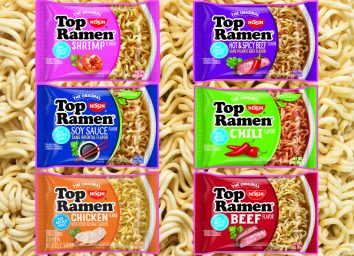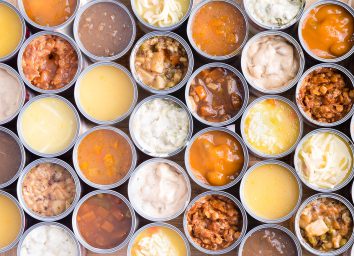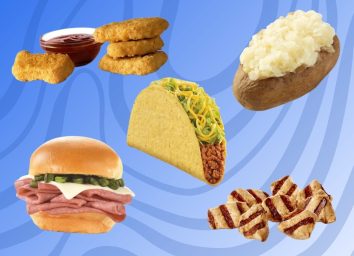6 Unhealthy Snacks to Avoid When You're Craving Salt
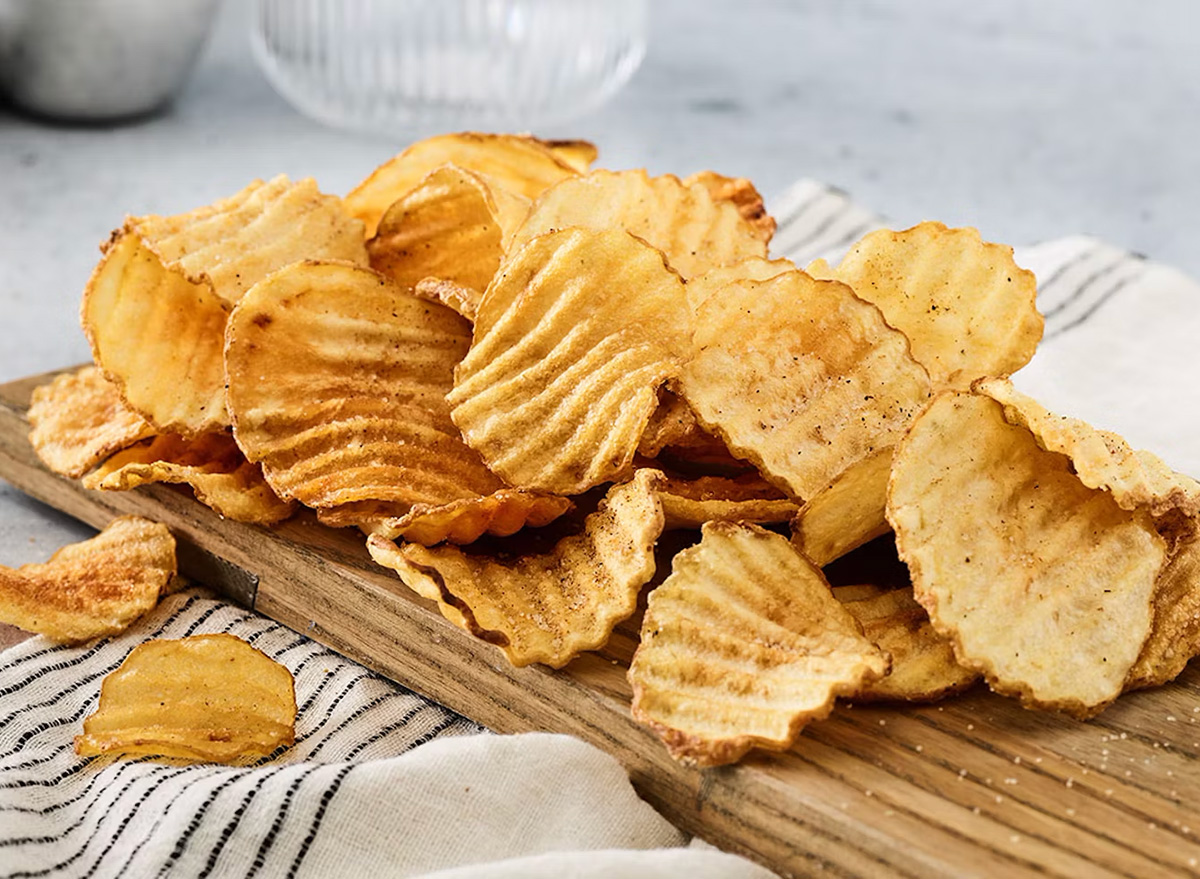
Although salt has a bad reputation when it comes to health, our bodies need it—in moderation—to survive. That's one of the reasons we desire salt so passionately—evolutionarily, we're designed to crave it because it plays a vital part in many of our bodily functions, such as balancing fluids and minerals and controlling muscle movements.
But the typical American diet contains way too much salt, whether you realize it or not. According to the American Heart Association, adults should consume between 1,500 and 2,400 milligrams (mg) of salt per day, which is about one teaspoon. But most people have around 3,400 mg or more daily!
Another shocker: More than 70 percent of sodium intake doesn't come from the salt shaker, but rather from packaged and prepared foods. So the next time you're craving a salty snack, say no to the following options and reach for a healthier alternative instead! And if all else fails, try this four-step plan to break your salt habit.
Potato Chips
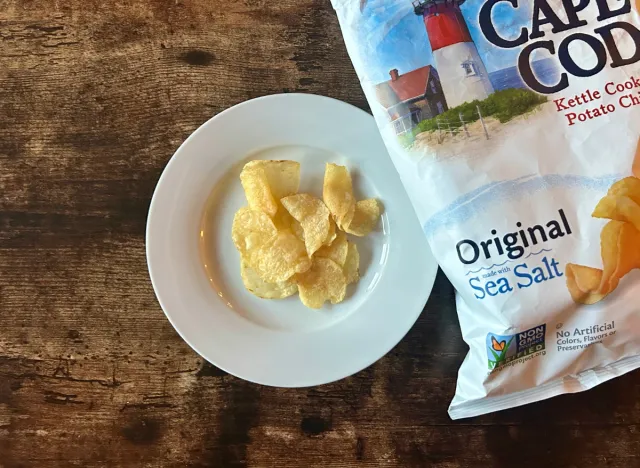
Oh, the lovable potato chip—frequenter of summertime BBQs, football tailgates, family game nights, and solo couch-surfing sessions. One of the reasons why they're so tasty (besides that addictive crunch) is salt. Unfortunately, there's no loophole to make potato chips healthy; Even the ones marketed as "non-GMO" or "natural" are still high in fat and sodium.
A healthier swap? Dehydrated carrot sticks. Before you balk, listen up: They offer all the nutrients of a carrot (such as vitamin A), but still give you that satisfying, starchy crunch.
Tortilla Chips
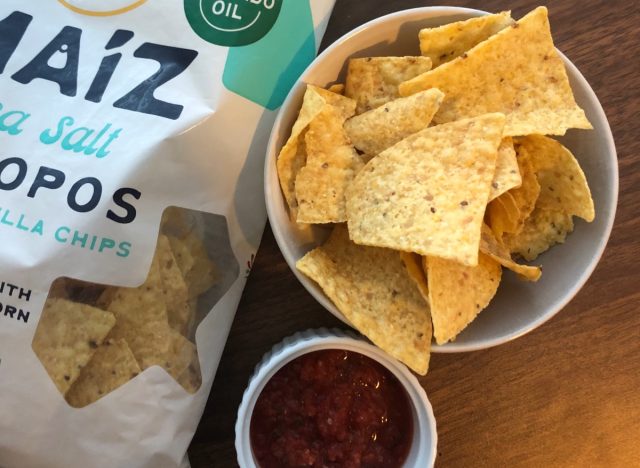
If you want something crispy to scoop up your salsa, forgo your standard fried tortilla chips, which are loaded with unhealthy oils and salt.
Instead, opt for a baked, grain-free version, like these tortilla chips from Siete Foods, which are made with cassava (a starchy root), chia seeds, and coconut flour, and contain zero grams of sodium.
Chip Dips
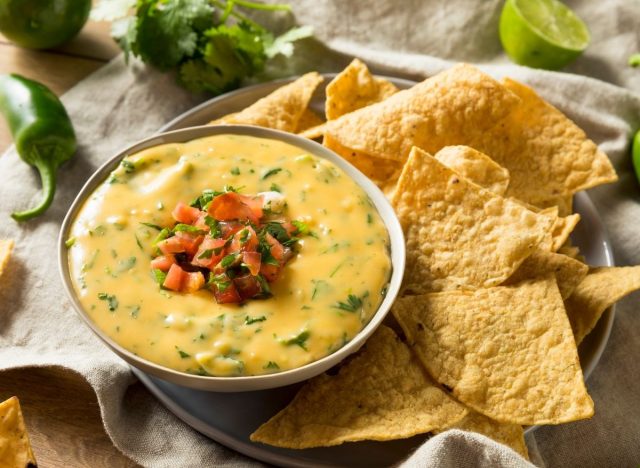
Whether it's salsa, ranch, guac or, nacho cheese, dunking chips into dips means you're getting salt on top of salt. Take, for example, Kraft Cheez Whiz Original Cheese Dip, which is loaded with 440 mg of sodium per 2 tablespoons.
A more nutritious option? Hummus, which is packed with macro- and micro-nutrients and provides a healthy source of both protein and fiber.
Microwave Popcorn
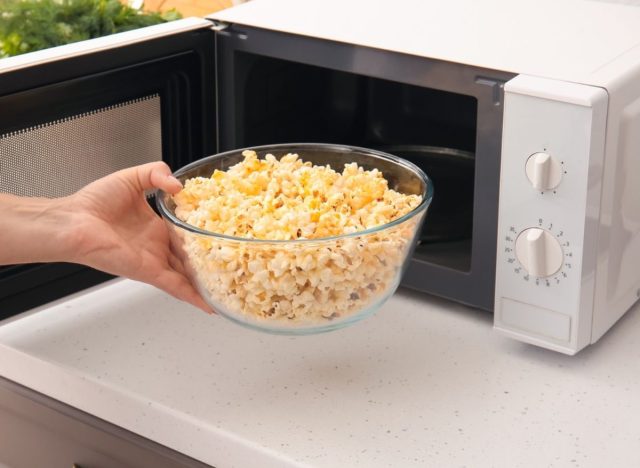
Microwave popcorn may be a convenient staple for at-home movie nights, but it's often loaded with unhealthy oils, fake butter, and excess salt.
Rather than abandon your beloved snack (which packs a great dose of fiber and antioxidants), either go for a healthier microwave option or choose air-popped, plain, or lightly salted popcorn. One good option: Boom Chicka Pop's Avocado Oil Popcorn, which contains 140 mg sodium and zero grams trans fat. Or, get an air-popper and make your own, which gives you the ultimate control over how it's seasoned.
Pretzels
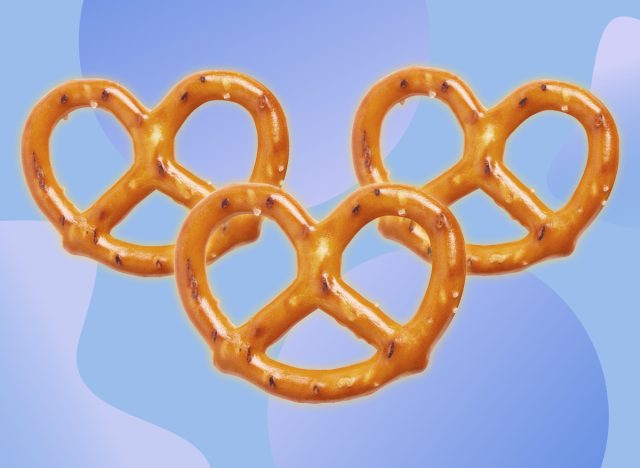
Sorry, but on the scale of nutritional value, pretzels rank pretty darn low. Made mostly of white flour, they're just a bland vehicle for salt delivery. Plus, if you reach for a flavored pretzel, like Snyder's Hot Buffalo Wing Pretzel Pieces, you'll be getting a whopping 380 mg of sodium in just one serving (yikes!).
Instead, opt for kale chips—crispy, crunchy, and loaded with vitamin A (which aids immunity) and vitamin K (which balances blood sugar and promotes healthy bones). Plus, kale chips are super easy to make! See for yourself with this simple, tasty recipe.
Honey-Roasted Nuts
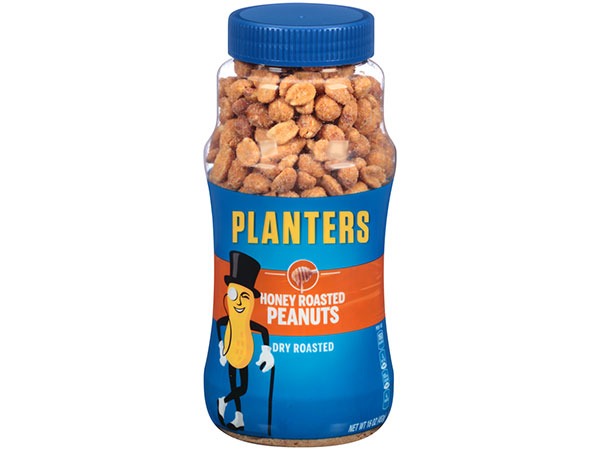
Nuts are packed with nutrients (like omega-3 fatty acids, protein, and fiber) and can be a great snack, but you have to choose wisely. Steer clear of nuts that have anything added. Peanuts, for example, often come coated in both salt and sugar, which adds empty calories and contributes to your added sugar intake for the day—something that most Americans are already far exceeding. (some sweetened nuts contribute as much as 6 grams of added sugar, or 12% DV per serving.) Plus, roasting nuts at high temperatures can zap them of some of their nutrients!
The better choice: Raw or dry-roasted almonds, which are the lowest-calorie nut and give you a healthy dose of protein, fiber, vitamin E, and magnesium.
If you're a sucker for pulverized peanuts, check out these Top 20 Peanut Butters—Ranked!
